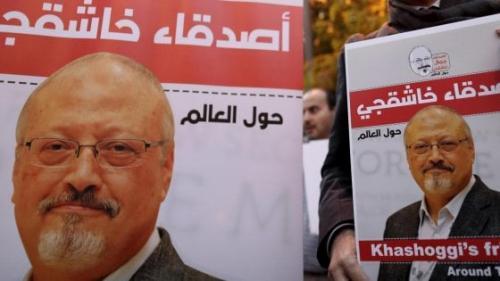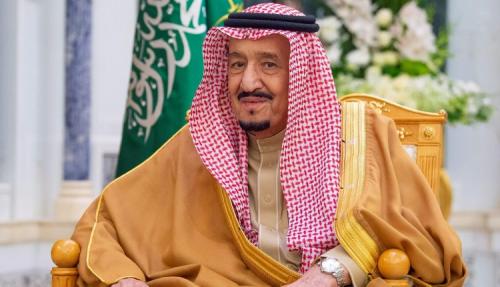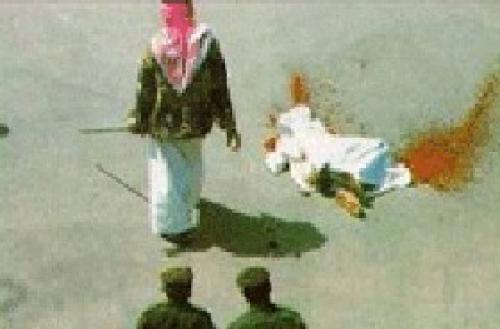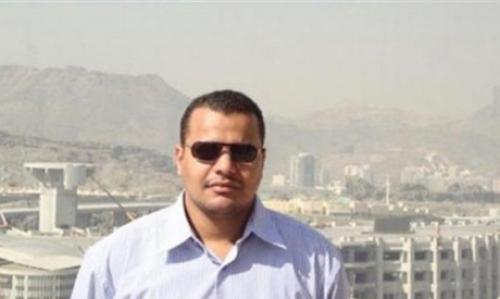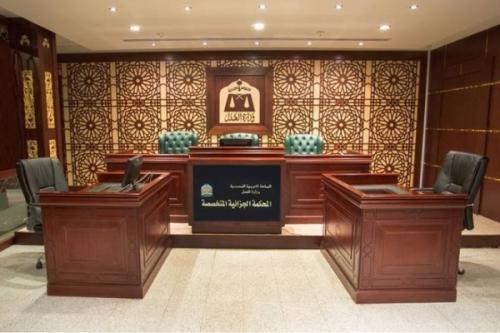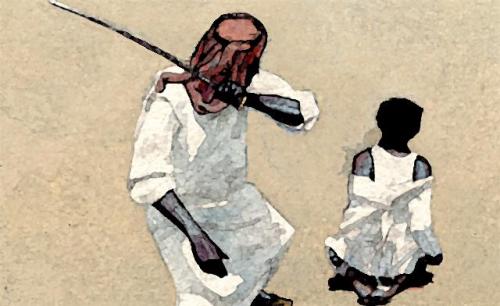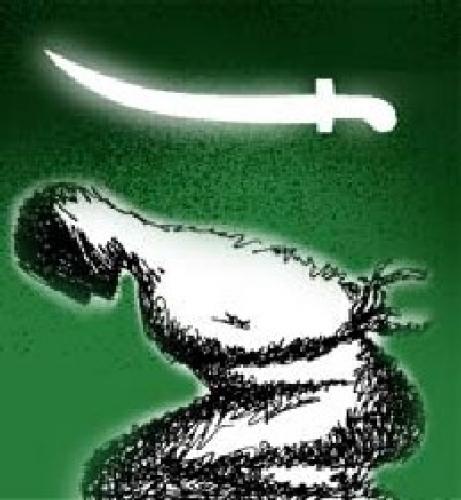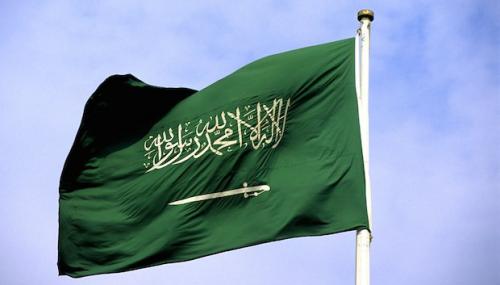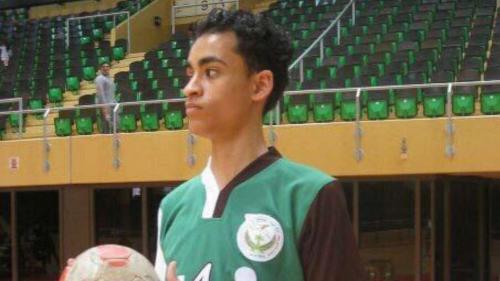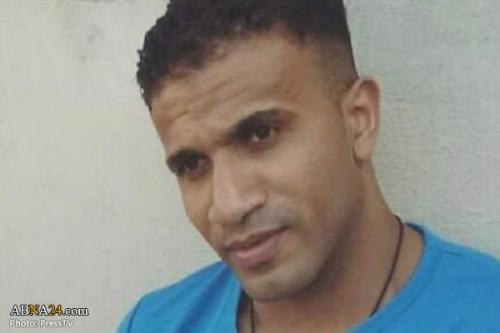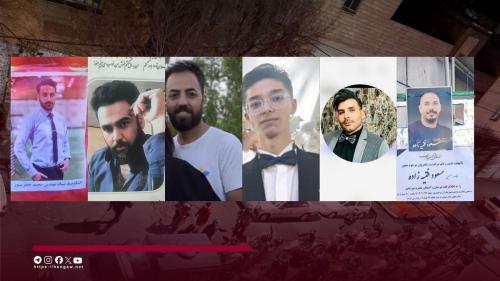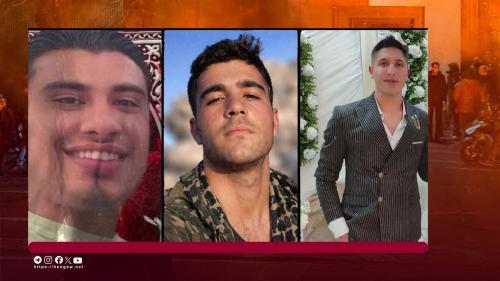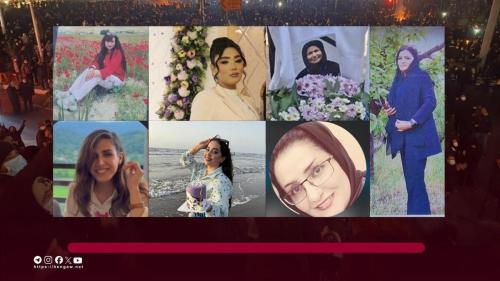situation:Saudi Arabia is the Islamic country that most strictly interprets Sharia law. It prescribes the death penalty for homicide, rape, armed robbery, drug-trafficking, witchcraft, adultery, sodomy, homosexuality, highway robbery, sabotage, and apostasy (renouncing Islam).
On September 12, 2005, Saudi Arabia decided to create a Governing Commission for Human Rights. According to an official communication, the Commission has the duty to “protect and strengthen human rights, defend their awareness and ensure the respect of human rights while following Islamic law.” The decision to create the commission shortly followed the ascension to the throne of King Abdullah in August after the death of King Fahd. The creation of a Governmental body on human rights had been scheduled in previous years.
On 12 January 2010, the Shura Council passed legislation amending the Criminal Procedure Law so that death sentences can only be issued if approved unanimously by all judges in the case. The amendment also states that lower court verdicts awarding the death penalty or sentences dealing with the severing of hands or similar punishments will not be carried out without a verdict from the Supreme Court. The Court decision shall be with a unanimous decision. An overwhelming majority of 92 members voted in favour of the new amendment, while a few members opposed it.
On 14 October, 2012, the Shoura Council made again a major decision toward reducing instances of capital punishment in Saudi Arabia by stipulating that a death sentence issued on the basis of a judge's discretionary power becomes final only if the verdict is unanimous. "The ruling of an appeals court on a lower court's decision to kill by beheading, stoning, amputation, or qisas (legally entitled retribution for a victim or his relatives) etc" will not be final except after it is endorsed by the Supreme Court. “The court's endorsement of the death penalty on taazir (a judge's discretion in situations where no religious punishment is prescribed) should not be made final unless it is by unanimous agreement," the council stipulated while discussing recommendations on criminal regulations made by the Committee for Islamic & Governmental Affairs. The Council voted down the committee's recommendation that the implementation of taazir for death punishment can be implemented even if the decision is made without unanimity.
TIn 2016, Saudi Arabia beheaded at least 154 people, 150 by beheading and 4 by firing squad. Three were women and 151 men; 118 were Saudi, the other foreigners. A majority of those who were executed were convicted of murder (83), followed by terrorism (47), drug-related offences (22), rape (1) and rape of juvenile (1). In 2015, the kingdom had beheaded at least 159 people. At least 40 people were sentenced to death in 2016.
In 2017, Saudi Arabia executed at least 140 people. Among those executed, 2 were women and 138 men; 87 were Saudi Arabian citizens and 53 were foreigner nationals, including the two women. Most of them have been executed for murder (72), then for drug related crimes (60), terrorism (4), rape (3), and 1 for “Istidraj” [revealing the unknown during unawareness and displaying weird acts]. However, according to the
European Saudi Organization for Human Rights (ESOHR), during 2017, 146 people were beheaded, 90 of them were Saudi citizens while the other 56 were foreigners,. Of those, 60 were charged with drugs offenses. In 2016, Saudi Arabia executed at least 154 people. At least 1 people has been sentenced to death in 2017.
In 2018, Saudi Arabia executed at least
142 people. According ESOHR, in 2018 there were 149 executions. Among those executed, 3 were women and 139 men; 73 were Saudi Arabian citizens and 69 were foreign nationals, including the three women. Most of them have been executed for murder (82), followed by drug related crimes (57), terrorism (1), rape (1), and 1 for armed robbery.
The number of executions is similar to the at least 140 recorded in 2018, but the number of
foreigners executed increased of 30%, from the at least 53 in 2017, to 69 in 2018. Foreigners executed in 2018, were 75 according to ESOHR.
The new surge in executions began towards the end of the reign of King Abdullah, who died on 23 January 2015, accelerating this year under his successor King Salman, who has adopted a more assertive foreign policy. In April, the King promoted his powerful Interior Minister Mohammed bin Nayef to be crown prince and heir to the throne. Some diplomats in Riyadh have said that judicial reforms, including the appointment of more judges, have allowed a backlog of appeals cases to be heard, leading to a short-term rise in executions. Others have argued that regional instability may have led Saudi judges to impose more draconian sentences.
On 5 April 2018, Crown Prince Mohammad bin Salman said in an
interview with Time magazine that the Saudi authorities have a plan to decrease the number of executions, but that they would not limit executions to people convicted of murder. Nearly all executions in Saudi Arabia that are not for murder are for non-violent drug crimes. The Prince said the country would consider changing the penalty from death to life in prison in some cases, but not in murder cases. Despite this declaration, executions for drug, which continue to be 40% of the total, amounted to 57 in 2018, a very little decrease (0,05%) if compared to least 60 in 2017.
Beheading Beheading as a “legal” means of carrying out executions provided by Sharia law is exclusive to Saudi Arabia. Typically, executions are held in the city where the crime was committed in a public place near the largest mosque. The condemned is brought to the site with their hands tied and forced to kneel before the executioner, who draws a long sword, while the crowd shouts “Allahu Akbar” (God is great). Sometimes, beheading is followed by the public display of the bodies of the executed. The typical procedure of beheading provides for the executioner to re-fix the beheaded head onto the body of the executed, so that it may be hanged, generally, for about two hours, from the window or balcony of a mosque or upon a pole, during midday prayers. The pole is sometimes shaped in the form of a cross, hence the use of the term “crucifixion”. The bodies of the executed are displayed only on specific orders from the tribunal, when the crime committed is considered particularly heinous.
Often, the accused is denied the assistance of a lawyer before the trial and in the courtroom.
In 2018, Saudi Arabia beheaded at least
142 people.
Firing squad In March 2013, Saudi Arabia authorised regional governors to approve executions by firing squad as an alternative to public beheading, the customary method of capital punishment in the kingdom. The reason for the change was a shortage of qualified swordsmen. According to a circular by the Government’s bureau of investigation and prosecution, the use of firing squads was being considered because some swordsmen had to travel long distances sometimes to get to the place of executions, making them sometimes late. The circular stated that death by firing squad was not a breach of Sharia law. A firing squad had been used to carry out a death sentence a few years ago. Sheikh Ali Al-Hakami, member of the Senior Board of Ulema, gave his seal of approval for execution by firing squad, as long as it is as quick or faster than the traditional method of beheading. He added that death by firing squad could be permissible according to Sharia, as long as the process is painless. “That’s why beheading by sword is the best way to achieve the purpose of punishment in Islam because it does not cause any torture,” Al-Hakami said. Al-Hakami added that religious scholars should also investigate the possibility of using other methods, such as electric chair, hanging and lethal injections, to find out if they also comply with Sharia.
Stoning Saudi Arabia’s laws include stoning to death but the penalty has not been executed for many years. For example, a married Muslim who practices sodomy or a non-Muslim with a Muslim can be stoned to death.
On 13 June 2016, Mohammed Al Zahrani, ex-director of the Saudi prisons department, said many people had been sentenced to stoning to death in the past years for committing major crimes in line with the law but none of them has been stoned. He said many sites had been prepared for stoning at cemeteries in Riyadh and other cities in the past years but none of them has so far been used. “The reason is that they retract their confessions before the execution of the sentence,” he told the Saudi Islamic TV channel Al-Resala. “This is because Islam gives a chance to these convicts before they are stoned. They are informed that they can avoid being stoned if they change their statements and all of them have done so just before they were stoned.” On 23 December 2015, Sri Lanka's foreign ministry said the life of a Sri Lankan maid due to be stoned to death in Saudi Arabia for adultery had been spared. The 45-year-old mother of two would instead be imprisoned, after an appeal by Sri Lanka was considered by Saudi Arabia and the execution order was withdrawn. The woman was convicted in August, along with an unmarried Sri Lankan man. She was sentenced to death by stoning, while the man was sentenced to 100 lashes. Government official Ranjan Ramanayake said the Sri Lankan government had been informed about the woman's case only after she had been convicted – despite the fact she had been arrested in April 2014. “Islamic Sharia law says four respected Muslims need to be eyewitnesses for this type of case, but this has not been possible in this case,” he said. “Unfortunately, not knowing the law, she has confessed under pressure without any legal help.”
Blood money In Saudi Arabia, numerous cases involving “blood money” were resolved positively thanks to the Saudi Reconciliation Committee (SRC), a nation-wide organization that secures pardons for death row prisoners and helps settle lengthy inter-family and tribal disputes through mediation. Its mission is to prevent haggling by the families of the murder victims over blood money Diya. Since its establishment in 2008 and as of March 2015, the committee dealt with more than a thousand cases involving convicted murderers who were sentenced to death and was able to secure pardons in 309 of them, said Nasser Bin Mesfir Al-Zahrani, the committee’s chairman.
In September 2011, Saudi Arabia decided to triple Diya, the money paid by a killer to the victim’s relatives under Islamic law, but kept the sum for female victims at half that for male victims. The Kingdom’s supreme judicial authority raised Diya to 300,000 Riyals (80,000 USD) from 100,000 Riyals (26,666 USD) in accidental death and 400,000 Riyals (106,666 USD) in premeditated murder. Blood money values have been static for the last 29 years. The Supreme Council of Scholars had called for reviewing Diya in light of the increasing prices of camels, which were used as blood money in the old Islamic age. According to Sharia rules, the heirs of a murdered person should be compensated with 100 camels.
Forgiveness from the families of the victims must be documented in a court of law. Three judges control the information and the formal aspects of pardon granted before allowing procedures go ahead. The judges also verify if families who pardoned the convicts have placed some condition.
In November 2016, the Supreme Court stated that in case of pardon, the sentence should be commuted in five year of imprisonment by the judges.
The death penalty for apostasy and blasphemy Dozens of people are arrested each year on charges like witchcraft, recourse to supernatural beings, black magic and fortune telling. These practices are considered polytheistic and severely punished according to Sharia law.
In March 2012, Saudi Arabia decided to bolster its religious police unit specialized in arresting magicians within its war on sorcery. The crime of “sorcery” is not defined in Saudi Arabian law but there have been reports of cases involving all forms of black magic, including: dowsing, exorcism, money cloning, fortune tellers, healers, bone-setters, makers of potions, herbalists, palmists, animal callers, alchemists, psychics, and empathy.
In November 2014, the Saudi Arabian government decided to impose the death sentence on anyone who attempts to import “all publications that have a prejudice to any other religious beliefs other than Islam.” In other words, anyone who attempts to bring Bibles or Gospel literature into the country will have all materials confiscated and be imprisoned and sentenced to death.
Several persons accused of witchcraft have been executed in Saudi Arabia in the past few years.
Death penalty for juveniles Saudi Arabia does not have a penal code and judges pass verdicts based on their own interpretation of Sharia law. Saudi Arabia ratified the U.N. Convention on the Rights of the Child in 1996, which prohibits the death penalty and life imprisonment without parole as punishments for those under the age of 18 at the time of their crime. However, the Saudi authorities do not seem to take their assumed responsibilities on human rights through adherence to international treaties very seriously, because there is a huge divergence between the commitments made by Saudi Arabia for human rights and its daily reality. Furthermore, the Sharia law of the Kingdom never imposes the death penalty on persons that have not reached the age of adulthood, and on the basis of the Regulations of Detention and the Regulations of Juvenile Detention Centres of A.H. 1395 (1975), that is defined as anyone under the age of 18. However, a judge could issue a death penalty against the accused if they felt that the offender had reached maturity, regardless of their actual age at the time of the crime.
On March 22
nd, 2018, the official Saudi reaffirmed its declarations that considered the age of the juvenile is not 18 years, where the
media reported that the Shura Council, which is fully appointed by the king, had approved the government’s amendments to the procedures concerning juvenile cases, (by amending the age of the statutory punishment of the offense to the age of 15).
A previous relevant declaration in that sense was released on 13 December 2017, when Saudi authorities specified to the UN a loose definition of a child age which contradicts the Conviction on the Rights of the Child. It said that what specify the legal age of an individual are the existence of “sensual and measured signs of maturity that give him the ability to fulfill religious obligations, engage in the financial transactions and to take criminal responsibility”, which is completely contradicted with its previous statements and reports. This is despite Saudi Arabia confirmed its commitment to the age of the child stipulated in the Convention on the Rights of the Child in statements between 2009 and 2017 monitored and documented by ESOHR at this link (
https://www.esohr.org/en/?p=1643)
In 2018 ans in 2017, no executions of juvenile offenders were recorded in the Kingdom, while in 2016, Saudi Arabia executed three people who were 17 at the time of their alleged crimes. In 2013, Saudi Arabia executed three people who were 17 at the time of their alleged crimes. In 2014 and 2015, no executions of juvenile offenders were recorded in the Kingdom.
As of 9 May 2018, ESOHR has documented
8 cases of children that facing death sentence: Ali Al-Nimir, Abdullah Al-Zaher, Dawood Al-Marhoon, Saed Al-Skafi, Abdul Kareem Al-Hawaj, Salman Al-Kuraish, Moujtaba Al-Suwaiket, and Abdullah Al-Sareeh.
On 30 October 2018, United Nations human rights experts have called on Saudi Arabia to stop the imminent execution of six of them (Ali al-Nimr, Dawood al-Marhoon, Abdullah al-Zaher, Mujtaba al-Sweikat, Salman Qureish e Abdulkarim al-Hawaj). They were sentenced to death for activities related to a wave of anti-government protests in 2011. In a joint statement, the experts said that the six were sentenced to death for alleged crimes that actually amount to the “criminalization of the exercise of fundamental rights, including freedom of assembly and expression.” The experts, who include Agnes Callamard, the UN Special Rapporteur on arbitrary executions, said that since the individuals were minors at the time of alleged offenses, imposing the death penalty on them runs counter to international law and would amount to “arbitrary executions.” They said the men were also subjected to torture and ill-treatment, and were “forced to confess, denied adequate legal assistance during trial and never had access to an effective complaint mechanism.”
Death penalty on women
According to the Saudi Arabia Law of Criminal Procedure (art. 10) public stoning can be used to execute individuals who have been convicted of acts such as adultery but the penalty has not been executed for many years.
Saudi Arabia strictly applies Sharia and ranks 141/149 for gender equality in the 2018 Global Gender Gap Index. In September 2011, Saudi Arabia tripled “diya” but the “blood money” paid for the killing of or injury to a woman is always half that of a man.
The death penalty is prescribed for adultery, a sexual relation between a woman and a man out of marriage (Zina). If the person is married, the penalty is stoning, if not married, 100 lashes.
Homosexuality is punished by beheading.
Although the crime of adultery is difficult to prove, as four eyewitnesses of the penetration act serve, the law is applied more to women.
Pregnant women and those with children under the age of three are exempted from the death penalty.
The latest news of a woman’s conviction for adultery dates back to 20 November 2015, when a Sri Lanka woman, married and mother of two children, who was in the country for work, was sentenced to stoning after confessing to having committed adultery with another Sri Lankan worker, who was instead sentenced to 100 lashes because he was not married. The sentence of the woman was subsequently reduced to three years on appeal.
In 2018, Saudi Arabia executed
3 foreign women for murder. (2 from Ethiopia and 1 from Indonesia). In 2017, Saudi Arabia had executed at least 2 women and in 2016 at least 3.
Death penalty top secret Executions are public domain only once they are carried out, while family members, lawyers and the condemned themselves are kept in the dark. The executions are announced by the Minister of the Interior generally and, usually, filmed by the official Saudi news agency SPA.
Many of those executed are foreign nationals, the vast majority being from the poorer countries of the Middle East, Africa and Asia. The migrant workers are highly vulnerable to abuse from their employers and the authorities. They are often not aware that they have been sentenced to death. In many cases, they have not even realised that their trial has ended. The condemned only begin to realise the gravity of their situation, when a handful of police erupt into their cells, call the condemned by name and drag them out to their execution. Humanitarian organisations have denounced the absence of due process in Saudi Arabia. Often, the accused is denied the assistance of a lawyer before the trial and in the courtroom.
In 2018, Saudi Arabia beheaded at least 142 people, including
69 foreigners (among them 3 women), according to a
Hands Off Cain tally based on media reports. They were 75 according to ESOHR.
An increase of
30% if compared to the 53 recorded in 2017.
Saudi Arabia executes more Pakistanis than any other foreign nationality annually: 31 (24 for drugs and 7 for murder) which represent 21,8% of the total, followed by 7 Nigerian (for drug), 5 Egyptian (3 for murder and 2 for drug), 4 Yemen (2 for murder and 2 for drug), 4 Jordan (drug), 3 from Ciad (murder), 4 Ethiopian (2 women for murder and 2 men for drug), 2 Indonesian (for murder and one was a female), 2 lebanon (drug), 2 Syrian (drug), 1 Indian (murder), 1 Sudaneese (murder), 1 from Myanmar (murder), 1 from Djbouti (murder) and 1 stateless (murder).
The war on drug
In 2005, Saudi Arabia redefined the law on drug-trafficking, giving discretionary powers to judges in deciding between imprisonment and the death penalty. The 1987 law calls for the mandatory sentence of death for those who traffic or manufacture illicit drugs while the death penalty is discretionary for those who use illegal drugs. Now judges can decide, at their own discretion, to reduce the sentence to a maximum of fifteen years, 50 lashes or a minimum fine of 100,000 Saudi riyals (over 31,600 USD).
In February 2015, the legal charity Reprieve accused the UN Office on Drugs and Crime (UNODC) of contributing to Saudi Arabia’s unprecedented rate of state executions by helping the kingdom arrest offenders. The charity, which represents the interests of people on death row all over the world, said documents from September 2013 showed the UNODC had “agreed to cooperation with the [Saudi] General Directorate of Narcotics Control on drug control- related matters, including support to law enforcement efforts to combat illicit drug trafficking”. Responding to Reprieve, the UNODC’s deputy executive director Aldo Lale-Demoz denied that the agency had “a programme of assistance on counter-narcotics law enforcement” with the Saudi government. “Cooperation with Saudi Arabia is focused on technical assistance and capacity building in the many different thematic areas that fall under UNODC’s mandate,” Lale-Demoz said.
Of the 154 executions in Saudi Arabia in 2016, at least 22 were carried out for drug-related crimes.
Another 11 convicted of drug trafficking were beheaded in 2016 (as of 30 June).
Of the 142 executions in Saudi Arabia in 2018, 57 were carried out for drug-related crimes, while in 2017 were 60, three times higher than in 2016. Executions for drug amount to 40% of the total and in the 78,9% refer to foreigners. According to ESOHR, in 2018 there were 59 executions for drugs.
The war on terrorism
In Saudi Arabia, acts of terrorism – such as hijacking planes, terrorising innocent people and shedding blood – amount to “corruption on earth”, a charge that can carry the death penalty even when the offences do not result in lethal consequences.
The authorities set up specialised courts in 2011 to try Saudis and foreigners accused of belonging to
Al-Qaeda or involvement in a spate of deadly attacks in the kingdom from 2003-2006.
But those sentenced to death and executed for terrorism also included people convicted of involvement in anti-government mass protests that erupted in February 2011 in the Qatif district, which is home to many of the Sunni-ruled country’s Shiite minority. The protesters attacked security forces, as well as public and private property, said the official
SPA news agency.
In 2017, Saudi Arabia introduced a new counterterrorism law, which includes vague and overly broad definitions of acts of terrorism, in some cases punishable by death.
The law replaces a widely criticized counterterrorism law promulgated in 2014, adding definitions of specific acts of terrorism and their corresponding sentencing guidelines. It includes criminal penalties of 5 to 10 years in prison for portraying the king or crown prince, directly or indirectly, “in a manner that brings religion or justice into disrepute,” and criminalizes a wide range of peaceful acts that bear no relation to terrorism.
The Penal Law for Crimes of Terrorism and its Financing, published on 1 November 2017, strips away extensive powers from the Interior Ministry, which Saudi authorities reorganized in 2017, and transfers them to the newly established Public Prosecution and Presidency of the State Security, both bodies that report directly to the king.
The new law carries an overly broad definition of terrorism similar to the previous law. Unlike the previous definition, the new one includes a specific reference to violence with the clause “harm an individual or result in their death, when the purpose – by its nature or its context – is to terrorize people or force a government or international organization to carry out or prevent it from carrying out an action.”
The new law, however, does not restrict the definition of terrorism to violent acts. Other conduct it defines as terrorism includes “disturbing public order,” “shaking the security of the community and the stability of the State,” “exposing its national unity to danger,” and “suspending the basic laws of governance,” all of which are vague and have been used by Saudi authorities to punish peaceful dissidents and activists. The United Nations special rapporteur on human rights and counterterrorism had concluded in May 2017, following a visit to Saudi Arabia, that he was “concerned about the unacceptably broad definition of terrorism and the use of Saudi Arabia’s 2014 counter-terrorism law and other national security provisions against human rights defenders, writers, bloggers, journalists and other peaceful critics.”
One positive change to the definition of terrorism stipulated in article 1 of the previous law is the removal of the controversial phrase “insulting the reputation of the State,” which prosecutors have vigorously employed to charge and prosecute dissidents. Article 30 of the new law, however, allows prosecutors to limit the right to free expression by designating criticism of the king and the crown prince that “brings religion or justice into disrepute” as a terrorist act.
Given the new law’s vague definition of terrorism, which could allow authorities to continue to target peaceful criticism, other provisions of the law raise alarms, Human Rights Watch said. Article 34, for example, provides a prison term of three to eight years for anyone who supports, promotes, sympathizes with, or incites terrorism. Article 35 stipulates a sentence of no less than 15 years for anyone who “misuse[s] their status in any way either academic or social status or media influence to promote terrorism.”
The new law undermines due process and fair trial rights, Human Rights Watch said. Instead of amending the law to strengthen the role of the judiciary, it grants the public prosecution and the Presidency of the State Security the legal authority to arrest and detain people, monitor their communications and financial data, and search their properties and seize assets without judicial oversight. The Presidency of State Security can ban a suspect from travel without notifying them, and the law gives police officers and military personnel authorization to use force “according to regulations laid down in the law.” No additional regulations on use of force are mentioned in the text.
As in the previous law, article 19 of the new law allows the public prosecution to hold a suspect in pre-trial detention for up to 12 months, with unlimited extension upon court order, and article 20 allows suspects to be held for up to 90 days in incommunicado detention, where torture and mistreatment are most frequent, according to the UN special rapporteur on torture.
Article 21 restricts the suspect’s right to a lawyer during interrogation, and article 27 gives the SCC the authority to hear witnesses and experts without the defendant or their lawyer present. It requires the court only to inform them of the content of the testimony, greatly hampering their right to challenge this evidence.
The law, which includes 27 articles on penalties, introduces the death penalty for three acts. Articles 40 and 41 state that the court may sentence to death “anyone who kidnaps or detains a person or threatens to do so in execution of a terrorist crime” and “anyone who seizes a means of public transport or threatens to do so in execution of a terrorist crime” whenever any such action is accompanied by the use or declaration of either weapons or explosives.
Saudi Arabia carried out
1 execution for acts of “terrorism” in 2018, while in 2017, at least 4 were recoorded. In 2016, there were at least 47 executions for acts of "terrorism" in a mass execution which was criticised also by the UN.
United Nations On 21 October, 2013, Saudi Arabia reviewed under the Universal Periodic Review of Human Rights of the United Nations. The government rejected all the recommendations concerning the abolition of the death penalty, including the recommendation to establish alternative sentencing and to suspend its application for less serious offenses and for the people who were minors at the time of the crime, with a view to moratorium on executions. Saudi Arabia noted that the death penalty is only imposed for the most serious crimes and strict procedures are applied in capital cases to the extent that the judgments are reviewed by 13 judges to the three levels of competence, in a manner consistent with international standards.
On 9 September, 2014, the UN independent UN experts called on Saudi Arabia to implement an immediate moratorium on executions. "Despite numerous invitations from organizations for human rights, Saudi Arabia continues to beheading people with a frightening regularity and in flagrant violation of international law," said Christof Heyns, the Special Rapporteur of the United Nations on extrajudicial, summary or arbitrary executions. "The processes are grossly unfair. The defendants is often not allowed to have a lawyer and death sentences are imposed as a result of confessions obtained under torture."
In 2018, during its 20th Session in September 2018, the UN Committee on the Rights of Persons with Disabilities reached a Decision in Munir’s case, holding that Saudi Arabia has failed to fulfil its treaty obligations under Articles 4, 13(1), 15, 16, and 25 of the Convention. In its conclusion, the CRPD notes that Saudi Arabia is under an obligation to investigate Munir’s torture and to compensate him for the loss of hearing in his right ear. The Committee also stated that Saudi Arabia is obligated to “review his conviction with the guarantees enshrined in the Convention, including through the exclusion of the evidence obtained under torture; the permanent suspension of solitary confinement; the full access to his representatives; the provision of adapted procedural accommodations to ensure that the author can effectively take part to the procedure; and the access to health services needed by the author.” The Committee also noted Saudi Arabia’s obligations to prevent similar acts in the future, by prohibiting torture in the justice system, investigating allegations of torture, ensuring medical access in detention, and consider abolition of the death penalty.
Munir Adam is a Saudi citizen who was arrested in 2012 and tortured. Security forces beat him so severely during this torture that he permanently lost hearing in one ear. After pre-trial detention of more than three years, during which he was denied access to legal counsel, Munir was convicted and sentenced to death in the Specialized Criminal Court – the court system used to prosecute crimes of state security – using statements and confessions that had been coerced through torture. Among the charges against him were participating in “violent acts” at a protest in 2012 and “sending texts.” His death sentence was upheld on appeal in May 2017, and confirmed by the High Court on 3 July 2017. As such, he has exhausted all domestic remedies, and is at imminent risk of execution.
On 19 December, 2016, Saudi Arabia voted against the resolution for a moratorium on capital punishment to the General Assembly of the United Nations.
On 29 September 2017, Saudi Arabia voted against the Resolution on the Death Penalty at the 36° session of the UN Council on Human Rights.
On 19 December 2018, Saudi Arabia voted against the Resolution for a Universal Moratorium on Capital Executions at the General Assembly of the United Nations.
On 16 December 2020, Saudi Arabia voted again against.


